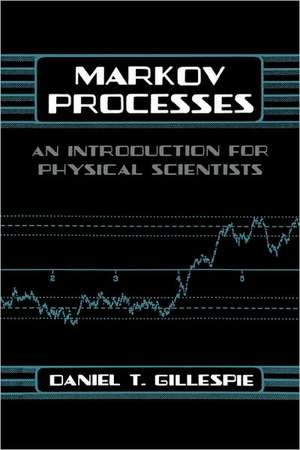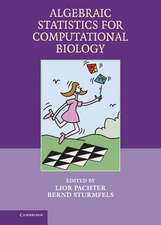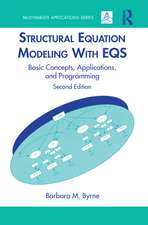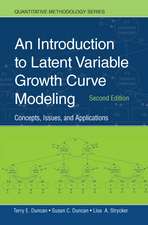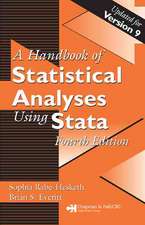Markov Processes: An Introduction for Physical Scientists
Autor Daniel T. Gillespieen Limba Engleză Hardback – dec 1991
- A self-contained, prgamatic exposition of the needed elements of random variable theory
- Logically integrated derviations of the Chapman-Kolmogorov equation, the Kramers-Moyal equations, the Fokker-Planck equations, the Langevin equation, the master equations, and the moment equations
- Detailed exposition of Monte Carlo simulation methods, with plots of many numerical examples
- Clear treatments of first passages, first exits, and stable state fluctuations and transitions
- Carefully drawn applications to Brownian motion, molecular diffusion, and chemical kinetics
Preț: 331.47 lei
Preț vechi: 395.01 lei
-16% Nou
Puncte Express: 497
Preț estimativ în valută:
63.47€ • 66.09$ • 52.66£
63.47€ • 66.09$ • 52.66£
Carte tipărită la comandă
Livrare economică 07-21 februarie
Preluare comenzi: 021 569.72.76
Specificații
ISBN-13: 9780122839559
ISBN-10: 0122839552
Pagini: 592
Dimensiuni: 152 x 229 x 34 mm
Greutate: 1.08 kg
Editura: ELSEVIER SCIENCE
ISBN-10: 0122839552
Pagini: 592
Dimensiuni: 152 x 229 x 34 mm
Greutate: 1.08 kg
Editura: ELSEVIER SCIENCE
Public țintă
Professionals/scientists without training in probability and statistics (using books as a "self-help" guide), senior undergraduate and graduate level students in physics and chemistry and mathematicians specializing in game theory, and finite math.Cuprins
Random Variable Theory General Features of a Markov Process Continuous Markov Processes Jump Markov Processes with Continuum States Jump Markov Processes with Discrete States Temporally Homogeneous Birth-Death Markov Processes Appendixes: Some Useful Integral Identities Integral Representations of the Delta Functions An Approximate Solution Procedure for "Open" Moment Evolution Equations Estimating the Width and Area of a Function Peak Can the Accuracy of the Continuous Process Simulation Formula Be Improved? Proof of the Birth-Death Stability Theorem Solution of the Matrix Differential Equation
